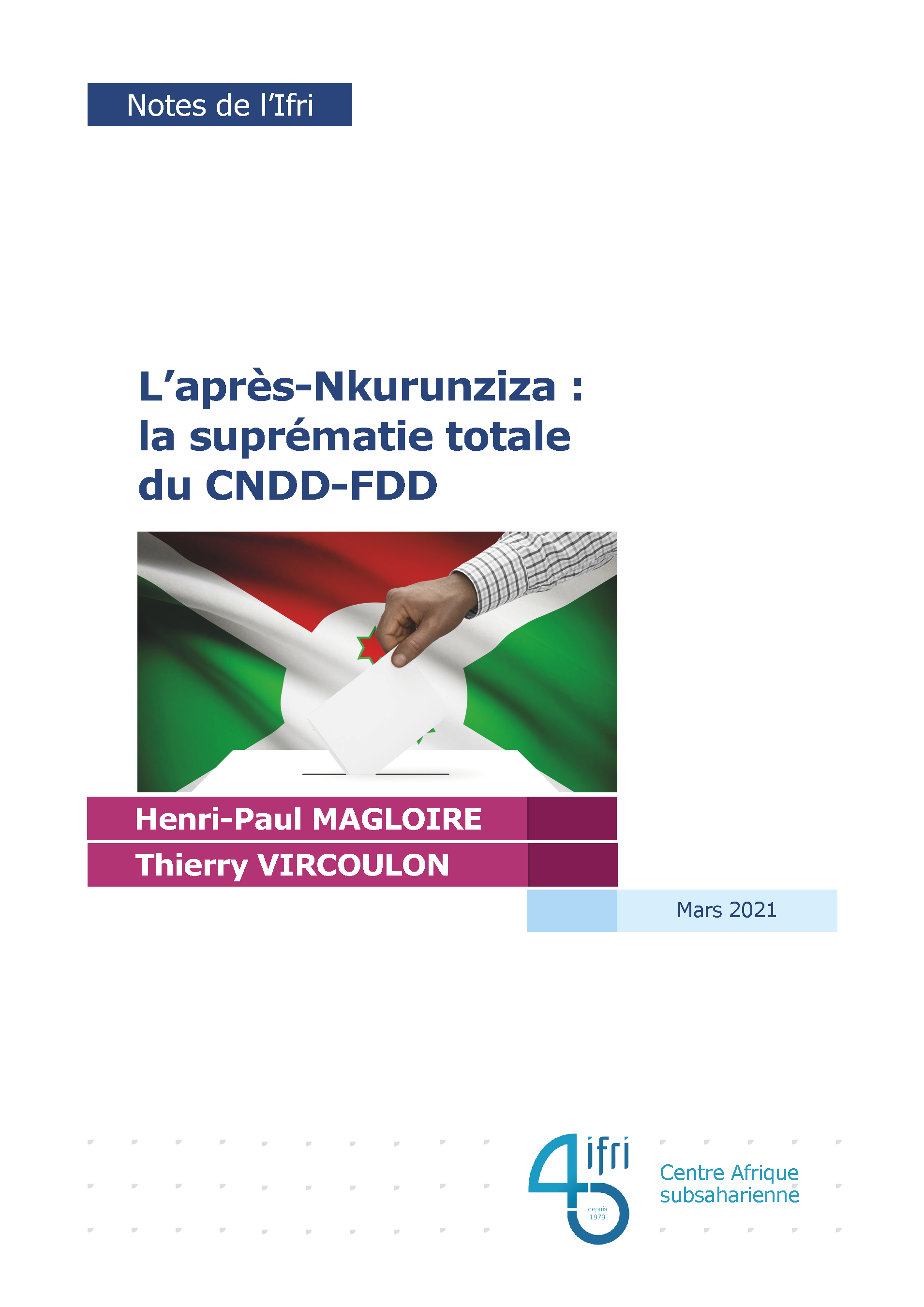Post-Nkurunziza : The Total Supremacy of the CNDD-FDD

Despite the coronavirus pandemic and the passing of President Pierre Nkurunziza on June 8, 2020, the election cycle (presidential, legislative, senatorial, communal and hillside elections) have been upheld and went smoothly. Not only has the ruling party, the National Council for the Defense of Democracy-Forces for the Defense of Democracy (CNDD-FDD) remained in power, but it has also consolidated its dominance over an institutional system that had been modified with the 2018 constitutional revision.

Tailored and stripped of the obligations of political consultation and inclusiveness, this institutional system is now completely in the hands of the party's securocrats who distinguished themselves in the repression of the 2015 crisis and some of whom are under international sanctions. The first announcements and decisions of the new government are of a very classical nature: alternating threats against the "enemies of the regime" and proclamations of tolerance and openness, promises to fight corruption, social measures that are both necessary, expected and not very credible. Although some of the leaders who came out of the recent elections have been in power for a decade or more, they are pursuing a policy of continuity that is seen by the population with great skepticism. The only major change introduced in Burundi after the elections has been the new health policy, which has put an end to the denial of the pandemic in Burundi and should help improve its management.
This content is available in French : L’après-Nkurunziza : la suprématie totale du CNDD-FDD






